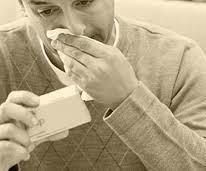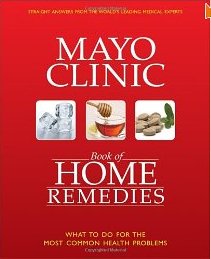August 29th, 2011 by Harriet Hall, M.D. in Opinion, Research
1 Comment »

During the early days of the 2009 H1N1 influenza A pandemic, the popular herbal formula maxingshigan–yinqiaosan was used widely by TCM practitioners to reduce symptoms. (It’s hard to pronounce and spell, so I’ll refer to it as M-Y.) A new study was done to test whether M-Y worked and to compare it to the prescription drug oseltamivir. It showed that M-Y did not work for the purpose it was being used for: it did not reduce symptoms, although it did reduce the duration of one sign, fever, allowing researchers to claim they had proved that it works as well as oseltamivir.
“Oseltamivir Compared With the Chinese Traditional Therapy: Maxingshigan–Yinqiaosan in the Treatment of H1N1 Influenza” by Wang et al. was published in the Annals of Internal Medicine earlier this month. The study was done in China, which is notorious for only publishing positive studies. Even if it were an impeccable study, we would have to wonder if other studies with unfavorable results had been “file-drawered.” It’s not impeccable; it’s seriously peccable.
It was randomized, prospective, and controlled; but not placebo controlled, because they couldn’t figure out how to prepare an adequate placebo control. They considered that including Read more »
*This blog post was originally published at Science-Based Medicine*
March 8th, 2011 by ErikDavis in Opinion, Quackery Exposed
1 Comment »
 This is a guest post from Erik Davis of Skeptic North.
This is a guest post from Erik Davis of Skeptic North.
**********
Bankers, Buyouts & Billionaires: Why Big Herba’s Research Deficit Isn’t About The Money
It’s a scene from the blogosphere that’s become all too familiar. A skeptic challenges a natural health product for the lack of an evidentiary base. A proponent of that product responds that the skeptic has made a logical error — an absence of evidence is not evidence of absence, and in such a scenario it’s not unreasonable to rely on patient reporting and traditional uses as a guide. The skeptic chimes back with a dissertation on the limits of anecdotal evidence and arguments from antiquity — especially when the corresponding pharma products have a data trail supporting their safety and efficacy. The proponent responds that it’s unfair to hold natural health products to the same evidentiary standard, because only pharma has the money to fund proper research, and they only do so for products they can patent. You can’t patent nature, so no research into natural health products gets done.
Okay, so maybe this isn’t a scene from an actual blog. The participants are way too civil, the arguments too coherent, and no one has been compared to Hitler. But it’s not a straw man either (look here, here, and here for recent examples), merely a distillation of an argument I’ve seen made repeatedly — that the deck has been stacked by Big Pharma, which has set a research bar that the much poorer natural health industry can’t possibly meet given the costs and lack of financial upside.
In my observation, skeptics don’t often have a good response to this argument beyond their basic scientific disposition toward only making assertions based on positive evidence. Typically, that’s not a disposition shared by the proponent, and thus they simply agree to disagree (read: trade barbs until the thread peters out from fatigue). Yet this need not be a purely philosophical debate. After all, there’s a testable premise embedded in this disagreement — that the natural health industry isn’t rich enough to sustain proper research. Is that true? Read more »
February 17th, 2011 by Steve Novella, M.D. in Health Tips, Research
No Comments »

 For the last week I have had a cold. I usually get one each winter. I have two kids in school and they bring home a lot of viruses. I also work in a hospital, which tends (for some reason) to have lots of sick people. Although this year I think I caught my cold while traveling. I’m almost over it now, but it’s certainly a miserable interlude to my normal routine.
For the last week I have had a cold. I usually get one each winter. I have two kids in school and they bring home a lot of viruses. I also work in a hospital, which tends (for some reason) to have lots of sick people. Although this year I think I caught my cold while traveling. I’m almost over it now, but it’s certainly a miserable interlude to my normal routine.
One thing we can say for certain about the common cold — it’s common. It is therefore no surprise that there are lots of cold remedies, folk remedies, pharmaceuticals, and “alternative” treatments. Finding a “cure for the common cold” has also become a journalistic cliche — reporters will jump on any chance to claim that some new research may one day lead to a cure for the common cold. Just about any research into viruses, no matter how basic or preliminary, seems to get tagged with this headline. (It’s right up there with every fossil being a “missing link.”)
But despite the commonality of the cold, the overall success of modern medicine, and the many attempts to treat or prevent the cold — there are very few treatments that are actually of any benefit. The only certain treatment is tincture of time. Most colds will get better on their own in about a week. This also creates the impression that any treatment works — no matter what you do, your symptoms are likely to improve. It is also very common to get a mild cold that lasts just a day or so. Many people my feel a cold “coming on” but then it never manifests. This is likely because there was already some partial immunity, so the infection was wiped out quickly by the immune system. But this can also create the impression that whatever treatment was taken at the onset of symptoms worked really well, and even prevented the cold altogether.
What Works
There is a short list of treatments that do seem to have some benefit. Nonsteroidal anti-inflammatory drugs (NSAIDs), like aspirin, ibuprofen, and naproxen, can reduce many of the symptoms of a cold — sore throat, inflamed mucosa, aches, and fever. Acetaminophen may help with the pain and fever, but it is not anti-inflammatory and so will not work as well. NSAIDs basically take the edge off, and may make it easier to sleep. Read more »
*This blog post was originally published at Science-Based Medicine*
October 7th, 2010 by Harriet Hall, M.D. in Better Health Network, Book Reviews, Health Tips, Opinion
No Comments »

 I write a lot of critical articles. It’s nice to be able to write a positive one for a change. I received a prepublication proof of The Mayo Clinic Book of Home Remedies: What to Do for the Most Common Health Problems. It is due to be released on October 26 and can be pre-ordered from Amazon.com. Since “quackademic” medicine is infiltrating our best institutions and organizations, I wasn’t sure I could trust even the prestigious Mayo Clinic. I was expecting some questionable recommendations for complementary and alternative medicine (CAM) treatments, but I found nothing in the book that I could seriously object to.
I write a lot of critical articles. It’s nice to be able to write a positive one for a change. I received a prepublication proof of The Mayo Clinic Book of Home Remedies: What to Do for the Most Common Health Problems. It is due to be released on October 26 and can be pre-ordered from Amazon.com. Since “quackademic” medicine is infiltrating our best institutions and organizations, I wasn’t sure I could trust even the prestigious Mayo Clinic. I was expecting some questionable recommendations for complementary and alternative medicine (CAM) treatments, but I found nothing in the book that I could seriously object to.
It is organized alphabetically, starting with acne and airplane ear and progressing through bedbugs, boils and bronchitis, dandruff, depression and diabetes to warts, wrinkles and wrist pain. Each entry consists of (1) a description of the problem and its symptoms, (2) treatments you can try at home, and (3) when to seek professional medical help. It concludes with a short section on emergency medicine that covers anaphylaxis, bleeding, burns, CPR, choking, fracture, heart attack, poisoning, seizure, shock and stroke.
Nowhere does it mention acupuncture, chiropractic, energy medicine, or homeopathy. It gives good, clear guidance about when a health problem should not be treated with home remedies. Its recommendations about diet and exercise are solid. It doesn’t recommend anything that can’t be supported by published studies and common sense. When it recommends herbal remedies and dietary supplements, it is cautious about what it claims. For instance, glucosamine and chondroitin are listed for osteoarthritis, but they point out that further study is required and they say “because the supplements may help and appear to be safe, it may not hurt to give them a try.” Not exactly a strong recommendation. Read more »
*This blog post was originally published at Science-Based Medicine*













